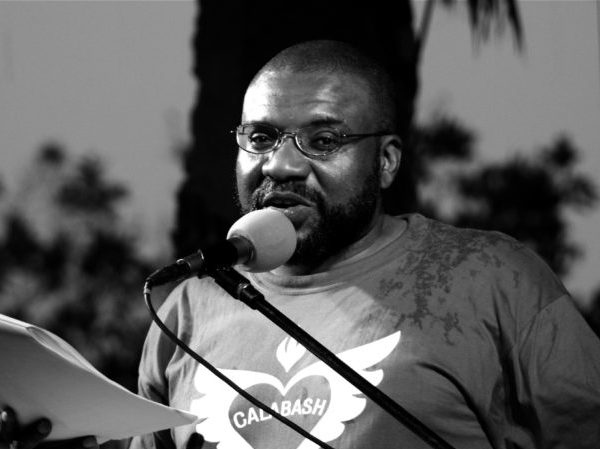 In the space of one month and one week, from February 6 to March 13, Emmy Award-winner and Prairie Schooner editor Kwame Dawes dished out thirteen writing tips for poets on twitter. The tweets, which we covered in our monthly literary digest for February, are essentially the do’s and don’t’s of writing poetry, and to an extent, writing in general. They include things to be wary of, one or two warnings, as well as suggested moderation on the use of similes and metaphors.
In the space of one month and one week, from February 6 to March 13, Emmy Award-winner and Prairie Schooner editor Kwame Dawes dished out thirteen writing tips for poets on twitter. The tweets, which we covered in our monthly literary digest for February, are essentially the do’s and don’t’s of writing poetry, and to an extent, writing in general. They include things to be wary of, one or two warnings, as well as suggested moderation on the use of similes and metaphors.
Also a critic, actor and musician, Kwame Dawes is a revered figure in literary circles. The Ghanaian professor of English at the University of Nebraska-Lincoln is famed for his artistic generosity and received the 2011 Barnes & Noble Writers for Writers Award, which honours writers who have used their position to create opportunities for other writers in the literary community. He established the South Carolina Poetry Prize and, alongside Chris Abani, edits Africa Poetry Book Fund’s annual New-Generation African Poets: A Chapbook Box Set, which is published by Akashic Books.
His 19th poetry collection, the much-praised City of Bones: A Testament, was published this January.
Read his tweets below, with their dates.
- Feb 6. Banned: The metaphorical heart. “Heartburn” is allowed, however. “Heartache,” too, only if a coronary is involved.
- Feb 8. The moon is always “distant.” It’s not like we are going to forget.
- Feb 10. Why not just call them “line-fractures” or “fractured lines” if that’s what you really mean? It’s a line ending, people.
- Feb 13. Only one poem about writing poems a year. They are all the same poem written when we have nothing to say.
- Feb 15. Epigraphs. From the Bible, always use original Hebrew or Greek—it throws off the God-haters, and you get to look smart.
- Feb 20. Prose poems: they might be double-agents, be on the alert.
- Feb 22. If the poem came from God, don’t ask me to edit God.
- Mar 1. Whose inept idea was it to ban articles and natural syntax from English language haiku?
- Mar 3. Metaphors are hams, divas; they hate to share the limelight and too many in a room can be blinding.
- Mar 7. A simile in a simile in a simile in a simile is a brilliant parlor trick, yes, but it’s not great for poems.
- Mar 8. Rhyming is one of the most under-appreciated forms poetic of improvisation.
- Mar 10. More often than not a well chosen verb makes an adjective superfluous.
- Mar 13. This just in: “Gloaming” has been banned from poetry, especially Irish themed poems.
***
Post image from alchetron.com via Google.








COMMENTS -
Reader Interactions